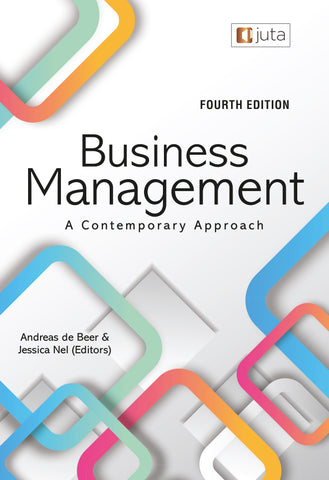
Business Management: A Contemporary Approach 4th Edition
No business exists in a vacuum – it is impacted on by a constantly evolving world, which presents new challenges and opportunities every day. To cope with these, a business should be proactive and adaptive, not just at an operational level, but at a functional and strategic level as well.
| ISBN: | 9781485132547 |
| Publisher: | Juta Publishers |
| Variant: | Printed |
| Author(s): | de Beer, A and Nel, J |
| Edition: | 4th Edition |
Content
Chapter 1: What is Business Management? – Andreas de Beer
- Introduction
- The scientific framework of business management
- Factors of production: methods to satisfy people’s multiple needs
- Entrepreneurship and business
- The business management cycle
- The business environment
- The value-chain approach
- About this book
- Summary
- Self-evaluation
- References
Chapter 2: General Management – Prof. Tersia Botha
- Introduction
- Definition of management
- Managerial skills
- Managerial levels
- Areas of management
- Creative problem solving, decision making and information management
- Management functions (tasks)
- Interaction of general management with other business functions
- Summary
- References
We Also Recommend





